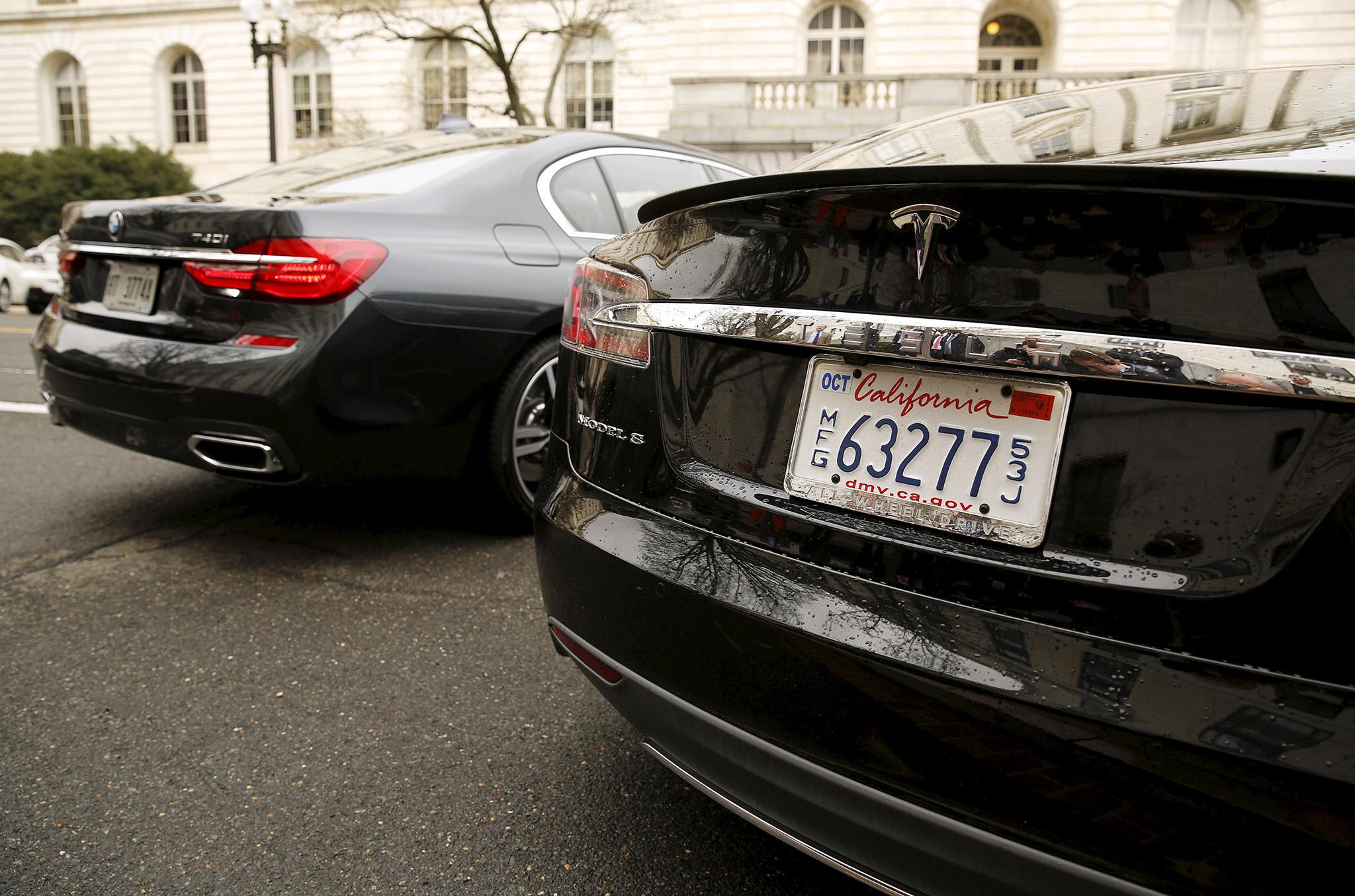BMW allies itself with engineering firms as doubts arise over profitability of self-driving cars
Carmakers are jostling for position in an emerging market which is set to see more losers than winners

BMW and Daimler, the world's top luxury carmakers, have announced alliances with suppliers, talking up the virtues of having a bigger pool of engineers to develop a self-driving car.
But another motive behind these deals, executives and industry experts told Reuters, is a concern that robocars may not live up to the profit expectations that drove an initial investment rush.
Carmakers are increasingly looking to forego outright ownership of future autonomous driving systems in favour of spreading the investment burden and risk.
The trend represents a clear shift in strategy from little more than a year ago when most carmakers were pursuing standalone strategies focussed on tackling the engineering challenge of developing a self-driving car, rather than on the business case.
"Although it is a substantial market, it may not be worth the scale of investments currently being sunk into it," said a board member at one of the German carmakers, who declined to be identified because the matter is confidential.
Dozens of companies - including carmakers and tech firms like Google and Uber - are vying for a market which, according to consulting firm Frost & Sullivan, will only make up about 10 to 15 per cent of vehicles in Europe by 2030. There are sure to be losers.
"It's impossible for me to believe there will be 50 successful autonomous vehicle software producers," said John Hoffecker, global vice chairman of Michigan-based consulting firm AlixPartners.
In July last year, BMW became the first major carmaker to abandon its solo development of self-driving cars in favour of teaming up with chipmaker Intel and camera and software manufacturer Mobileye to build a platform for autonomous cars technology by 2021.
The decision followed a trip by senior executives to visit startups and suppliers to gauge BMW's competitive position.
"Sitting at other companies, one rattles off the technological challenges and safety aspects, and you come to realise that many of us are swimming in the same sludge," Klaus Buettner, BMW's vice president autonomous driving projects, told Reuters.
"Everybody is investing billions. Our view was that it makes sense to club together to develop some core systems as a platform."
Daimler's Mercedes-Benz has since combined efforts with supplier Bosch, three months ago, while Japanese carmaker Honda has said it is open to alliances in the area of autonomous cars.
Even deep-pocketed tech companies are teaming up. San Francisco-based transport app operator Lyft and Alphabet Inc's self-driving car unit Waymo pooled their resources in May.
Partial autonomy is already a reality in higher-end cars that keep in lane and adjust their speed in motorway driving. Each of the next stages - "eyes off", "mind off" and ultimately driverless autonomy - will likely take years to become reality.
Klaus Froehlich, BMW's board member responsible for development, said the company was likely to lose money with its first fully autonomous vehicles, just like it did with its first-generation electric cars. But developing the technology remains a necessity in order to stay relevant as a carmaker.
"It is an enabling technology, not a business case," he said about BMW's decision to develop autonomous vehicles. "But if the burden can be shared on a platform, I have nothing against that."
One of the most financially promising markets that autonomous technology will open up is driverless on-demand taxis, which may one day come to replace regular cabs and parts of public transport in large cities.
"Robotaxis" are expected to drive the wider market for car sharing and ride-hailing, which was worth $53bn (£40bn) last year and could be worth $2 trillion by 2030, according to a McKinsey study published earlier this year.
Ford and General Motors are investing at least $2bn each to develop self-driving vehicles for urban ride-sharing fleets beginning in 2021, competing with incumbents and start-ups.
The emergence of alliances involving the likes of BMW and Mercedes-Benz comes at a time when regulators are pushing for a creation of standards for the new technology, which has the potential to improve vehicle reflexes and cut accidents by up to 90 per cent, according to Boston Consulting Group.
Industry experts say such standardisation could make it much harder to develop a product which stands out, calling into question the wisdom of high-stakes, go-it-alone strategies.
Reuters
Join our commenting forum
Join thought-provoking conversations, follow other Independent readers and see their replies
Comments
Bookmark popover
Removed from bookmarks